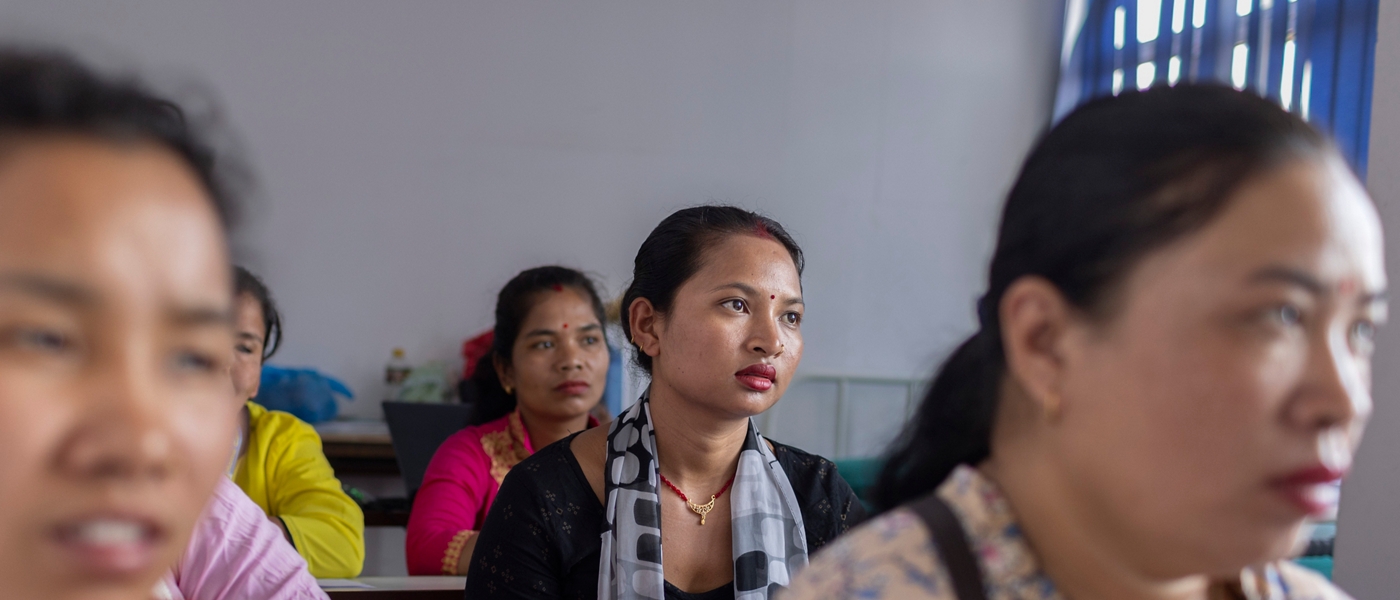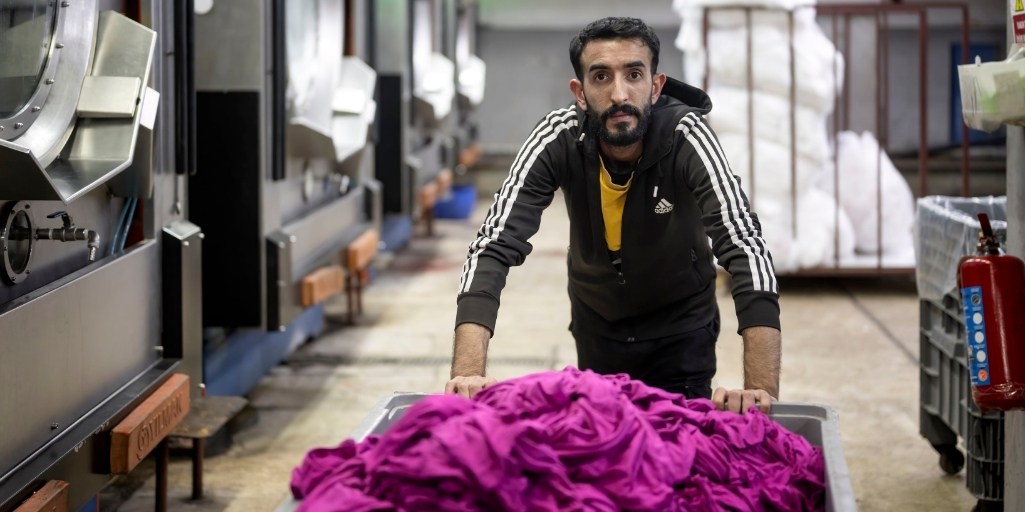Blog
-

-
Digital Inclusion and Europe Lead, Sustainable Infra Advisory, IFC
Mar 22, 2023
It’s an unfortunate truth: Communities most vulnerable to the impacts of climate change—many of them located in developing countries and near the operating spheres of infrastructure companies—often have the least access to the information that could help them strengthen their climate resilience.
This is a problem of global scale because failure to address local-level climate adaptation and risk mitigation could make the world’s already escalating refugee crisis even worse, as more than 140 million people in Africa, South Asia, and Latin America face the frightening prospect of becoming climate migrants by 2050. Extreme weather also leads to water scarcity and contamination, resulting in more climate challenges to communities and companies. By 2030, global demand for fresh water will exceed supply by 40 percent. In many areas, water has already run out.
At IFC, we are working on ways to reverse this trajectory, by bringing together companies and communities to co-create effective climate solutions for a resilient and just transition. Many of these solutions begin with increasing the public availability and accessibility of local-level climate data.
Open climate data builds knowledge and resilience.
This includes access to local datasets with historical trends as well as early warnings and future projections on drought, wildfires, floods, heat-related illness, and temperature. Along with community characteristics, such information can underpin climate-adaptive local community development planning. These communications can significantly reduce the toll of severe weather events.
Community/company open data collaboration builds climate resilience
Through IFC’s Disclosure to Development (D2D) global program, in partnership with the BHP Foundation, we are demonstrating the value of sharing reliable and usable data between infrastructure companies, governments, and communities. We’re also boosting the data literacy skills of local communities so they can be a part of the decision-making on enabling resilience. And we’re convening industry, civil society, and experts to identify pathways to increase the flow of open climate data, including traditional local knowledge, strengthened by the latest science.
We saw this in Mongolia, where IFC worked with 12 mining companies to design a voluntary code of practice, formalized in 2016, that has led to better data disclosure on water resources. In collaboration with governments, civil society, communities, herders, and media, participating companies commit to publicly reporting water risks and management practices, involving impacted communities in monitoring their water performance, and supporting training and awareness-raising on groundwater protection.

Disclosure for climate action
Data disclosure is also key for the energy transition and transparency on carbon credits and carbon finance flows. IFC’s recently launched Net Zero Roadmap for Copper and Nickel Mining Value Chains highlights transparent public disclosure as important in managing risks that threaten the transition and in fostering collaboration with communities. Such transparency is critical to a just energy transition, allowing communities to reimagine their future at the center of a new climate economy.
In addition to enhancing benefits for local communities, the push for open data and climate disclosure can create value for companies. It can enable access to Sustainability-linked Finance instruments, which incentivize companies to create rigorous, ambitious development impact. Brazilian energy company Neoenergia secured a $115 million IFC sustainability-linked loan to support the rapid expansion of its Coelba subsidiary. The loan comes with a sustainability framework that commits the company to a carbon emissions reduction target. Data and disclosure represent critical elements in achieving this target.
This is a win-win: Even as companies help themselves by providing data-backed evidence to substantiate their climate commitments, they can make an immediate difference for climate-vulnerable communities by prioritizing the sharing of accurate, timely, user-friendly, and relevant climate-related data.
Longer term, the knowledge and shared understanding generated can help catalyze sustainable development.
Climate disclosure challenges
There are challenges when it comes to data disclosure. During a recent session on open climate data convened by D2D, and attended by private sector, government, and civil society representatives, the discussion focused on climate disclosure starting points for companies and governments. Participants highlighted barriers such as ensuring that information is locally relevant and addressing skills gaps in communities so they can make use of the data. Companies also may lack awareness of the value climate data can offer to communities—filling public data gaps and providing real-time, detailed information. And they might not have the systems in place to extract and communicate meaningful insights. Participants acknowledged the importance of addressing the disclosure and usage challenges to enable more data-driven community engagement on climate.
We are encouraged by the growing interest from infrastructure companies in using data for climate good. The climate challenge facing the world’s most vulnerable communities is not an easy one to fix. But with more and better data, frontline communities and companies alike can take more control over their climate destiny. And that’s a goal worth working for.
More from IFC on open data and climate resilience:
Net Zero Roadmap for Copper and Nickel Value Chains
D2D Mining Community Innovation Challenge Sierra Leone
Project Factsheet – Disclosure to Development ‘D2D’ Sierra Leone Project
Blog – Pedal to the Metal: Decarbonization Pathways for Copper and Nickel
Related Content
How youth activists and cities can work together on climate
Climate Resilience
Open Data
Sustainability
How blue finance is helping the private sector in Türkiye to relieve the pressure of water scarcity
Climate Resilience
Open Data
Sustainability


